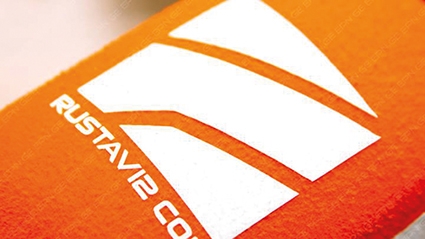New Dispute about Rustavi 2 TV Causes Mixed Reactions
A new court dispute has been started against the opposition-minded Rustavi 2 TV by the owner of 9% of company shares, Nino Nizharadze, who is asking for GEL 26 million from the Director General and other shareholders for the “damage caused to the company.”
The Director General of the TV channel, Nika Gvaramia, claims the authorities stand behind the lawsuit, adding this is a fight “against Georgian democracy and freedom of speech.”
Gvaramia stressed that the government and the founder and Chair of the ruling party Georgian Dream, Bidzina Ivanishvili, wants the TV Company to be broken in order to “silence the critical voice.”
He is sure the TV company will overcome the challenge, adding broadcasting has been switched to an emergency mode.
This is not the first dispute against Rustavi 2 TV, which is often affiliated with the former ruling party, the United National Movement, established by ex-President Mikheil Saakashvili.
91% shares of the company are owned by brothers Levan and Giorgi Karamanishvili. However, in 2015, Kibar Khalvashi, a former co-owner of the TV channel, filed a lawsuit claiming his shares had been illegally taken from him by the UNM.
In March 2017, after the case passed all the instances of the court system in the country, the Grand Chamber of the Supreme Court of Georgia ruled in favor of Khalvashi and gave him the total shares of the broadcaster. The following day, the European Court of Human Rights suspended enforcement of the verdict.
Nino Nizharadze is a wife of the former director of the channel, Gogi Gegeshidze, who received the company's shares after Gegeshidze's death.
She denies any political grounds for her suit and threatens to sue Gvaramia for defamation.
What do the President, the Government and the Ruling GD think?
The President of Georgia, Salome Zurabishvili, believes that freedom of speech is protected and guaranteed by the Constitution.
“Accordingly, all legal resources and means will be used to ensure that freedom of speech is protected in the country,” press-speaker Khatia Moistsrapishvili stated.
Vice-Prime Minister and the Minister of Regional Development and Infrastructure, Maia Tskitishvili said Rustavi 2 is trying to act as if they are being attacked.
“Rustavi 2 has been reporting attacks against them but… There is no attack and this is again another attempt to mislead our citizens as well as the international community,” she said.
Ruling Georgian Dream (GD) parliamentary majority leader Archil Talakvadze believes Rustavi 2 operates freely and without any hindrance, adding the statement of Gvaramia that the TV channel might be shut down is “disinformation.”
“The existence of critical media, free media and independent activities of journalists are the values and standards our government has provided,” he added.
What does the opposition say?
European Georgia member Sergi Kapanadze says it is unacceptable for Ivanishvili to try to silence free media in the country. He noted that the party has launched consultations with Rustavi 2 and others regarding the issue.
Meanwhile, the United National Movement says that this is a “new wave of the attack on the broadcaster from the authorities.”
Party member Grigol Vashadze stated that the government wants to “take revenge” on the television channel.
“Ivanishvili's regime wants to confront the public, strengthen the persecution of the opposition and try to suppress free speech…We, the whole political spectrum, will defend the TV station and will not let the government transform the country into the Russian Federation,” Vashadze claimed.
The leader of the Democratic Movement, ex-Speaker of the parliament Nino Burjanadze also blames Ivanishvili for the recent developments. She says Ivanishvili is fighting not only against “pro-Western media and forces,” as stated by Gvaramia, but “everyone who does not obey him.”
The Position of the non-governmental sector
The NGOs have released a joint statement regarding the new dispute, saying the process raises questions.
“Rustavi 2, one of the most influential broadcasters, critical of the government, has been facing the threat of editorial policy change for several years. Opinions about the editorial policy of Rustavi 2 may vary, but the existence of critical and diverse media platforms is crucial for a pluralistic media environment,” the organizations said.
13 NGOs say the new legal dispute hampers the work of the broadcaster; moreover, it threatens media pluralism and the free media environment in the country.
“The potential shift in Rustavi 2’s editorial policy will definitely have a negative impact on the 2020 pre-election period and the entire democratic process,” they say, adding that for a transitional democracy like Georgia, it is vital to adhere to the high standard of freedom of speech and expression, which is feasible only in a pluralistic media environment.
By Thea Morrison
Photo source: news.ge












